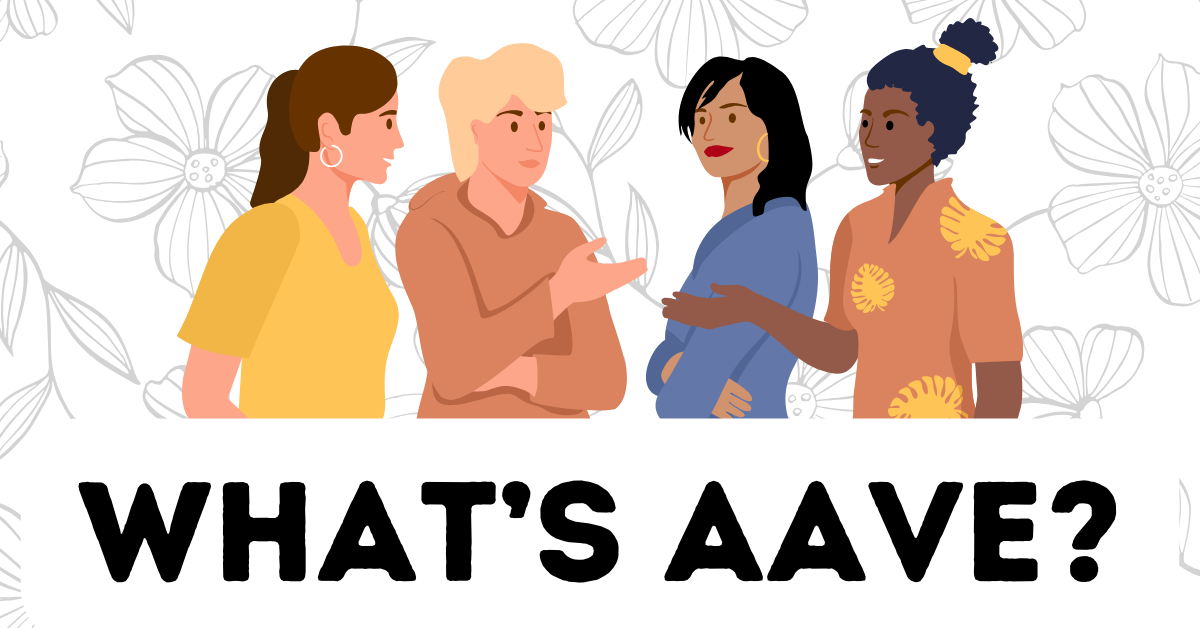African American Vernacular English (AAVE) is a variety of the English language which uses rules that are different from Standard American English (SAE) or General American English (GAE).
Have you heard about AAVE before? It’s an important part of the communication that takes place in African American communities. You can hear and see it frequently in the work of Black and African American artists from the U.S.
You can learn more about the artist and listen to her music here.
Features
In the lyrics to Nina Simone’s song above, you can hear many phrases like,
Ain’t got no faith.
Notice that the sentence is different from Standard American English. For example,
- The subject is not named in the sentence (“I ain’t got no faith”).
- We see the contraction “ain’t” in “ain’t got” (meaning “I haven’t got” or “I don’t have” in this context).
- We can also find a double negative (ain’t got no faith), which is not allowed in other forms of English.
AAVE isn’t the only variety of English that does this. “Ain’t” is also very common in Cockney English and other dialects.
In SAE, the same phrase might be expressed as “I have no faith”. However, translating the song to SAE would mean losing the power of Nina Simone’s words and voice. Blackness is portrayed not only in her lyrics, but also the way she uses the language to express herself.
AAVE Online
AAVE is used in diverse contexts, but it’s become especially popular among young people online. Here’s a video that talks about AAVE’s roots and how it has become more widespread.
AAVE in the classroom
Sometimes, AAVE and other “non-standard” varieties of English carry a negative stigma in mainstream society. Below is a great video about how some teachers in Los Angeles teach about both AAVE and SAE! ❤️
What about where you live?
Do you believe that exploring different varieties of a language is important? You can read some of my thoughts here.
Here are some questions to get you thinking too!
- Do you know any other features of AAVE?
- Are there many varieties of the language you speak? Which one is the most widespread on TV, in music or in schools?
Feel free to share your answers in the comments below!



Deja un comentario